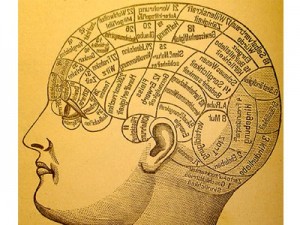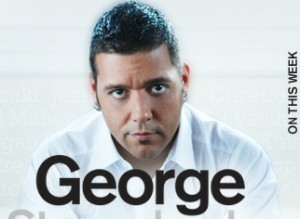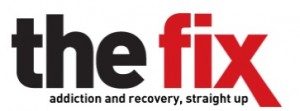 Many readers responded to my request for different perspectives and insights on the question: Is addiction a disease? I said I’d like to know what others thought before stating my own view. The strange thing is that my own view has changed considerably in light of your comments. Perspective is funny that way: it looks like a solid version of reality until the waves pick up, the boat starts to rock and pitch, and it’s time to set a new course…or jump ship.
Many readers responded to my request for different perspectives and insights on the question: Is addiction a disease? I said I’d like to know what others thought before stating my own view. The strange thing is that my own view has changed considerably in light of your comments. Perspective is funny that way: it looks like a solid version of reality until the waves pick up, the boat starts to rock and pitch, and it’s time to set a new course…or jump ship.
Over my next three posts, I’m going to talk about the three most common definitions of addiction, one per post: a disease; a matter of (unwise) choice; and a process of self-medication. And for each I’m going to show the pro’s and the con’s, backed up by theory and data from psychology and neuroscience.
My own model of addiction will come at the end, in a fourth post. Here’s a sneak preview: I see addiction as an accelerated form of learning. I see it as the result of a natural learning process that has gone way too fast and way too far, yielding habits that are extremely difficult to “unlearn”. I explain this in terms of the highly emotional content of what gets learned (associative learning in the amygdala), the processes that connect emotion with action (through the ACC and premotor cortex), and the elaboration of networks (in orbitofrontal cortex and related regions) that give the addictive goal its enormous “value” or “meaning” – all of which feeds back with the narrowed focus of our primary goal-seeking system (the ventral striatum and its dopamine pump).
I’d like to think that my model of addiction is accurate and precise – a scientific model – whereas the other three are analogies or metaphors. So I refute the idea that addiction is a disease, but I agree that it can be like a disease. And I refute the idea that addiction is a free choice, yet I see that it involves choice at every step. Finally, I don’t think that addiction is self-medication, but I agree that it’s based on attempts to self-soothe, to relieve anxiety, boredom, or depression.
So I’m tempted to claim that these three models are metaphoric approximations, whereas mine is the real thing. But wait a minute. If these metaphors help us understand addiction, if they help us to classify it and deal with it, then they must have some value. And maybe my model is an approximation too, albeit a biological one.
And what’s wrong with metaphors anyway? Some scholars say that all our concepts are based on metaphors or analogies – variations on a theme. So if, for example, the “disease” concept works to organize your thoughts, and more importantly your actions, to help addicts (including yourself?) work toward recovery, then it’s worthwhile, it’s beneficial, it might even be the best show in town.
Yet there is one major qualifier: different analogies, metaphors, models, or whatever you want to call them, work for in different ways for different people. And as much as they can be constructive for some, they can also be destructive for others. If you are tuned into the helplessness, the insidious, relentless growth of addiction, if you see addiction as something that takes over one’s body, one’s mind, maybe one’s soul, then the disease model is going to be meaningful to you. And your efforts to quit will take the form of searching for a cure. But for others, seeing addiction as a disease, as something outside the self, foreign to the self, the disease concept may be harmful. Because the implication is that “you” can’t do anything about it – at least not without help. Or, if you are tuned into the choices that fashion addiction, if you focus on those fleeting moments of intention, when addicts jump the gap from let’s-stay-sober to let’s-get-stoned, then the choice model will be most meaningful. And that model can help you to make different choices, because the cause is in you, it’s something you can change. But once again, the choice model is a double-edged sword. Because, for some people, it’s the basis of blame (from outside) and guilt (from inside) – both of which can poison the recovery process.
The way we see our addicted selves or our addicted loved ones is going to determine which model rings true. So experience is going to play a crucial role in how we define addiction. Consequently, I can say that my “learning” model is the most plausible, I can say that it fits best with cognitive science and brain science, but I can’t say that the alternative models are meaningless. They can do a great deal of good, or a great deal of harm, depending on how they’re used.
Stay tuned, for a closer look at each of the three models. And while we explore their meaning, we will also explore their use, their misuse, and their capacity to help or to hinder.
 Actually quite a few words. At times I seem to be in the throes of some seriously run-on sentences. I was a tad nervous. George seems like a really nice guy. Somehow he finds a way to connect with his guests and ask questions that are both challenging and friendly. That friendliness — what seemed like authentic warmth — made me feel less like a dork than I might have. I’ve always found it damn disconcerting to talk about the nasty things I did, on the air, especially on TV, where there’s really nowhere to hide. And there were a lot of cameras and lights, and real live people in the audience. So yeah, I was kind of nervous, especially at first.
Actually quite a few words. At times I seem to be in the throes of some seriously run-on sentences. I was a tad nervous. George seems like a really nice guy. Somehow he finds a way to connect with his guests and ask questions that are both challenging and friendly. That friendliness — what seemed like authentic warmth — made me feel less like a dork than I might have. I’ve always found it damn disconcerting to talk about the nasty things I did, on the air, especially on TV, where there’s really nowhere to hide. And there were a lot of cameras and lights, and real live people in the audience. So yeah, I was kind of nervous, especially at first.

